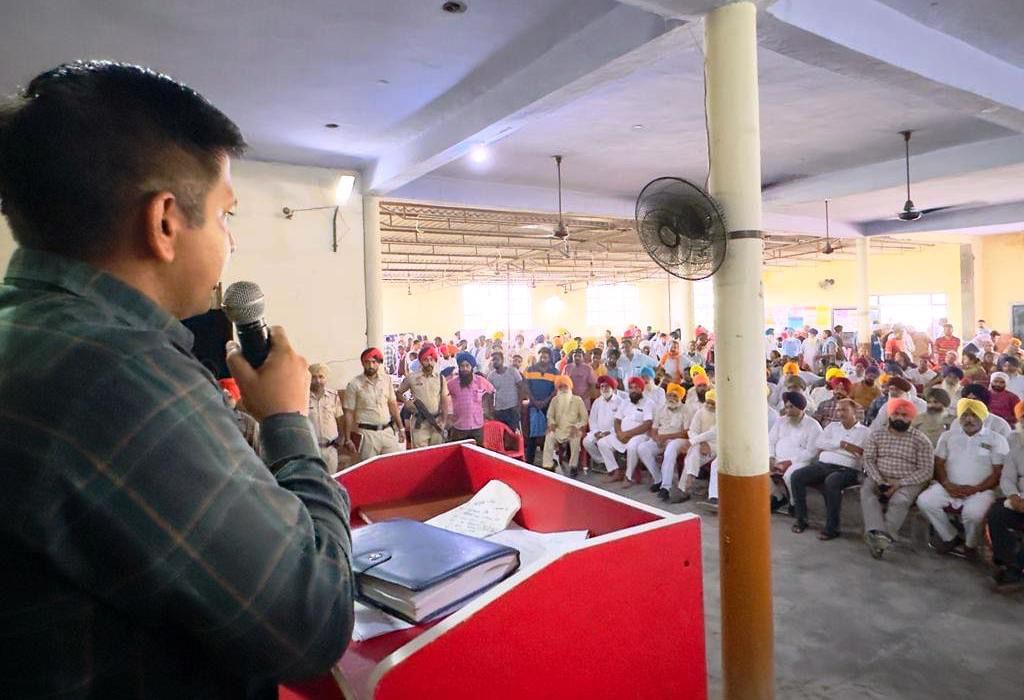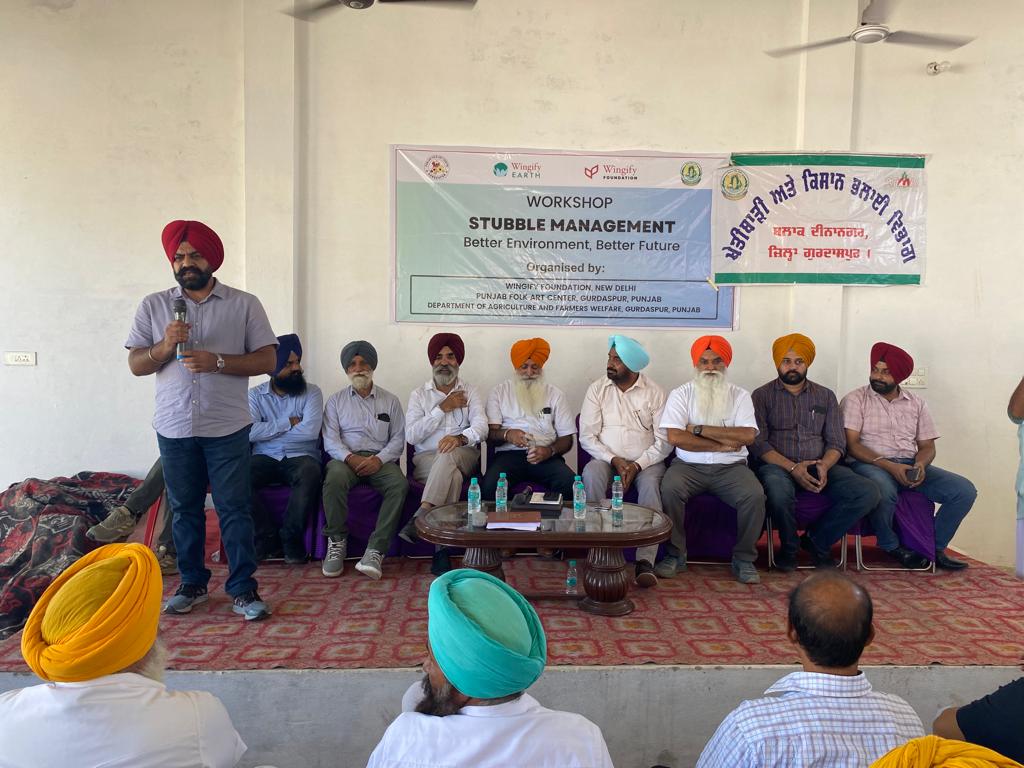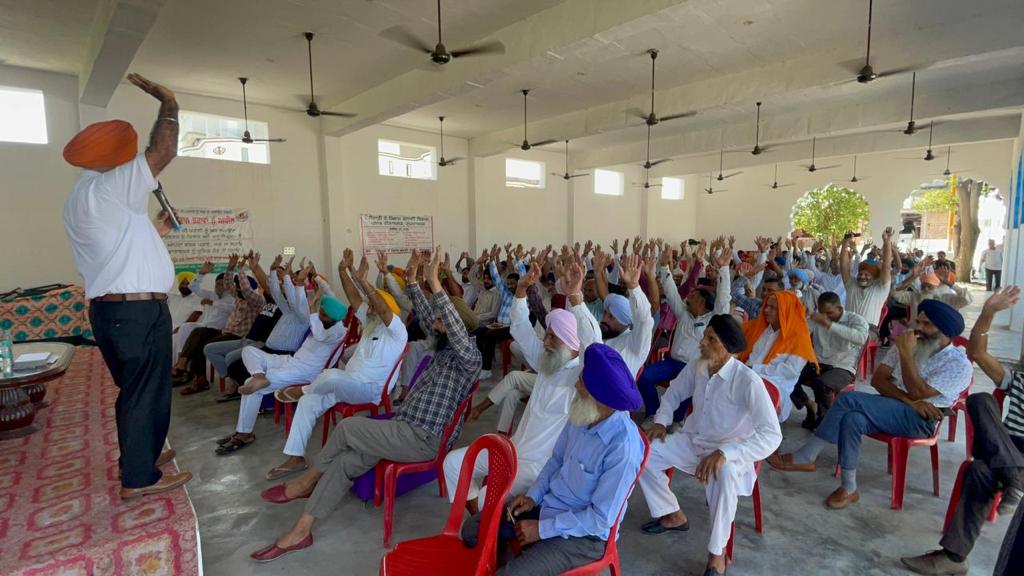To bring an end to the persistent issue of stubble burning in the district, 2014 batch IAS officer Himanshu Aggarwal, the Deputy Commissioner of Gurdaspur, Punjab, has unveiled an innovative initiative named ‘Vatavaran De Rakhe’ (Protectors of Environment). The initiative aims to encourage farmers and communities to refrain from stubble burning and promote responsible environmental practices.
Last year, Gurdaspur witnessed approximately 850 instances of stubble burning, highlighting the urgent need for a sustainable solution. In response, ‘Vatavaran De Rakhe’ was launched as a localized awareness campaign focussing on the 55 hotspot villages where more than 10 stubble burning incidents were recorded in the previous year.
VATAVARAN DE RAKHE
Speaking to Indian Masterminds, DC Himanshu Aggarwal explained, “Rather than adopting punitive measures against farmers and individuals resorting to stubble burning, we want to appreciate those who abstain from it. As part of this initiative, we have pledged to award the ‘Vatavaran De Rakhe’ certificate to farmers and panchayats that refrained from stubble burning last year and commit to not burning it this year.”

The certificate, acting as a form of recognition, grants holders certain privileges when dealing with government offices. Farmers and communities possessing this certificate can expedite their interactions with government entities, effectively jumping queues for various services.
Furthermore, villages awarded the ‘Vatavaran De Rakhe’ certificate will receive priority status in developmental projects.
COMMITTEE
To oversee the initiative’s implementation, a committee has been formed, consisting of senior administrative officers, the Chief Agriculture Officer, and a senior officer from the pollution control board. This committee will assess applications from those who have refrained from stubble burning and organize an awards ceremony at the end of the season, around the last week of November.
POSITIVE RESPONSE
Mr. Aggarwal reported that the initiative has already garnered positive responses, particularly from individual farmers who are committed to reducing stubble burning incidents. The ultimate goal is to decrease stubble burning incidents by more than 50% compared to the previous year’s 450 incidents.

TIE-UP FROM COMPANIES
As part of the ex-situ management approach, the initiative provides farmers with baler and rake machines to cut and convert stubble into bales. These bales are then transported to various industries where they are used as fuel, particularly in boiler machines. Additionally, stubble can be converted into pallets through a palletization process, with five businessmen applying to establish such industries in the district. “Two of these applications have already been sanctioned, paving the way for the utilization of stubble pallets in brick kilns,” the officer shared.
The officer further informed that this year, Gurdaspur distributed 118 rake and baler machines to farmers and has also witnessed the emergence of a separate industry supplying these machines directly to farmers. DC Himanshu Aggarwal expressed optimism, anticipating the growth of more such industries in the coming months.

CROP RESIDUE MANAGEMENT
In the context of crop residue management, two methods are employed: in-situ and ex-situ methods. While in-situ management involves mixing stubble back into the soil to enhance soil fertility, ex-situ management collects and utilizes stubble elsewhere. “Currently, Gurdaspur boasts around 5000 in-situ machines and approximately 200 ex-situ machines in operation,” the officer shared.
The ‘Vatavaran De Rakhe’ initiative represents a concerted effort to protect the environment, promote sustainable agricultural practices, and reduce the harmful consequences of stubble burning in the region. With the active participation of farmers, communities, and local businesses, Gurdaspur aims to make significant strides towards a cleaner and greener future.



































